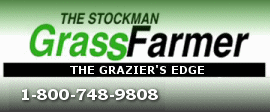Cage-free eggs gaining popularity but only pastured eggs show nutritional benefits
Staff report
NEW YORK: The October 18, 2005 edition of The Wall Street Journal had an article on the rapid growth of cage-free eggs in the USA.
The article said there are three basic production prototypes for eggs. These are caged, non-caged and free range.
Approximately 98% of the world�s eggs are now produced by caged hens.
The Humane Society said that raising chickens in cages too small for them to flap their wings is inhumane.
Industrial poultry producers responded saying the cages prevent the birds from injuring each other by pecking and help prevent disease-spread.
United Egg Producers, an industry trade group, said that going to cage-free chickens in confinement production would double hen death rates over caged production.
Industrial producers had hoped to deflect criticism by proposing to go to a slightly larger cage and offering to remove the chickens� manure more frequently.
However, the recent announcement by Bon Appetit Management Company, which operates 200 cafeterias and corporate campuses that it will no longer buy eggs from caged birds is giving industrial producers pause.
Bon Appetit buys about eight million shell eggs a year and a large quantity of shelled liquid eggs.
The 177 store Whole Foods Market Inc. and the 80 store Wild Oats Markets had previously announced they would no longer buy eggs from caged birds.
Eggs from caged and cage-free eggs taste the same and have the same nutritional profile but the cage-free eggs typically sell for three times as much.
This focus on humane egg production has produced a large number of egg labels trying to cash-in on �politically correct� egg production. These egg labels include organic, free-range, omega-3 enriched, antibiotic free and �pastured.�
However, Michael Hamm, a professor at Michigan State University, said the only eggs with a nutritional difference are those that come from �pastured� hens with daily access to green grass.
Pasturing hens on green grass produces eggs higher in healthy omega-3 fatty acids and vitamin E.
Free-ranged chickens without access to grass do not show any nutritional improvement over conventional eggs.
Currently, most free-range hens only have access to outdoor dirt runs.
The article said the healthier �pastured� eggs are typically only available at farmers� markets.
� by The Stockman Grass Farmer
If You Would Like To Read More Articles Like This One, CALL 1-800-748-9808 And Request A Free Sample Of THE STOCKMAN GRASS FARMER TODAY!
Or Order A Free Sample Of THE STOCKMAN GRASS FARMER online. CLICK HERE.
To subscribe to THE STOCKMAN GRASS FARMER CLICK HERE.
